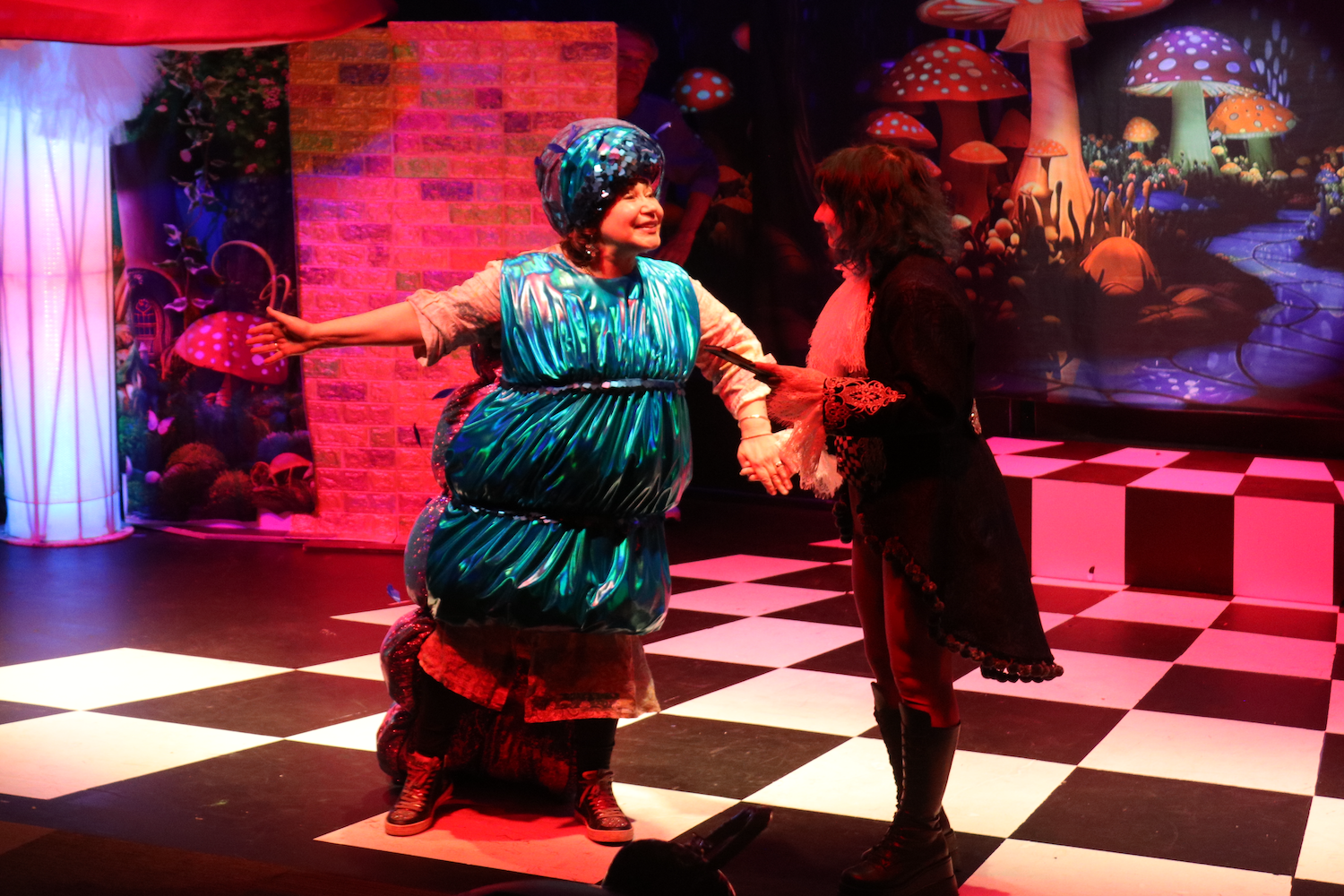As actors shuffle backstage and guests behind to fill the theater, the lights dim. One light shines as old record music begins to play. A hush falls over the small theater, and Marina Chechelnitsky lifts her head and begins to speak.
Tears. A wide smile. Her acting takes your breath away.
Emotions are one of the few things that can cross the barriers of language and culture.
As such, theater, alongside other arts, plays an important role in connecting people.
“The biggest impact I think theater and performance have in relation to immigration is being able to create empathy,” said Lora Krasteva, a founding member of Migrants in Theatre.
According to Krasteva, theater allows people, including migrants, to share their perspectives and experiences on an emotional level instead of merely sharing facts and numbers that aren’t effective in creating understanding between people.
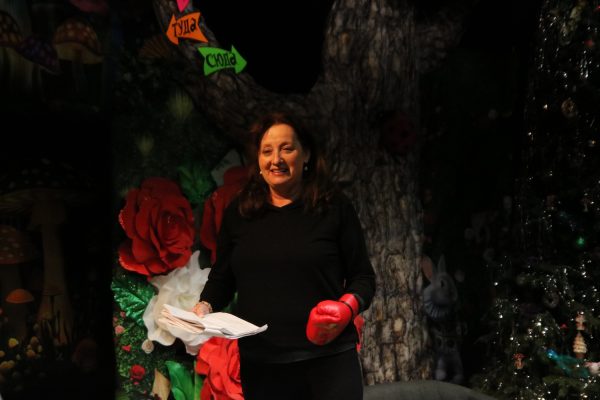
For Marina Chechelnitsky, theater has been a nurtured love: grown by childhood visits to theaters in St. Petersburg, Russia, with her mom and kept alive by acting roles in local theaters.
“Other things are chores. I do those things in order to be able to act,” Chechelnitsky said.
In 1988, Chechelnitsky became one of the millions of immigrants living in the United States.
She worked 100-hour weeks at an internship, pumping the lungs of HIV patients.
“People didn’t want to take foreign medical graduates for post-medical training, and I had to really work to get one,” Chechelnitsky said.
While Chechelnitsky had to work hard to be accepted into the training program due to its high standards, other immigrants faced and continue to face more systemic obstacles in their careers.
A study from the UCLA Center for Health Policy Research found 70% of immigrants surveyed felt as though they had been discriminated against in the workplace on the basis of skin color or accent.
Additionally, in meetings with casting directors and performers in 2020, Krasteva heard many stories about directors asking people to sound more or less ethnic, particularly Latin American.
“There was a clear discrimination against people not born in this country, who do not sound English,” Krasteva said.
The discrimination that migrants face can cause them to seek out members of their community for support and understanding.
Throughout her years living in the United States, Chechelnitsky has maintained her original cultural ties.
“All of my close friends are still Russian-speaking, from the same wave of immigration,” Chechelnitsky said.
Chechelnitsky was lucky to have a support network when she immigrated. Her family and classmates, who had immigrated at the same time, kept her from feeling isolated.
For migrants, a lack of social support can result in poor self-esteem and an inability to adjust, according to the National Library of Medicine.
Despite any struggles, Chechelnitsky did not have the time to feel out of place. Her approach to immigration was to take things one step at a time, working towards her American dream.
“I thought it was just a work in progress,” Chechelnitsky said.
Attempting to assimilate into a new culture and way of life is an intrinsic part of immigration due to personal feelings of isolation or external pressures.
According to Pew Research Center, 71% of surveyed Americans believed that sharing customs and traditions is at least somewhat important to belonging, supporting the narrative that migrants are encouraged to lose their sense of self and cultural identity. Furthermore, 77% believe that speaking a country’s dominant language is important, which places additional emphasis on the role of artistic expression in the acceptance of migrants.
As a result of these evident prejudices, immigrants must balance the demands of their new environment with the desire to maintain and build a community of people with shared values and experiences.
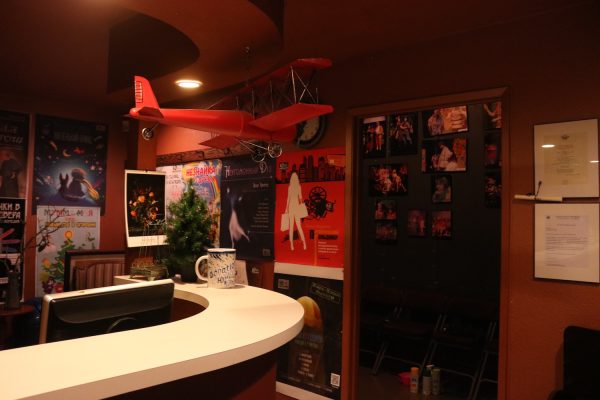
In 2006, Chechelnitsky joined Theatre on the Backyard.
It was a small company of Russian-speaking people acting on a makeshift stage in one member’s actual backyard.
“I was very fortunate to meet a group of people who loved theater the same way I do,” Chechelnitsky said.
The same year, the founder of “Theatre on the Backyard” changed its name.
Theatre You was born, and it brought together a collection of Russian-speaking actors, directors, and technicians.
Chechelnitsky eventually established it as a formal non-profit organization, and Theatre You moved to a small commercial space in Mountain View.
The rented space was made to fit a retail office, so Chechelnitsky and her fellow enthusiasts worked to transform the space.
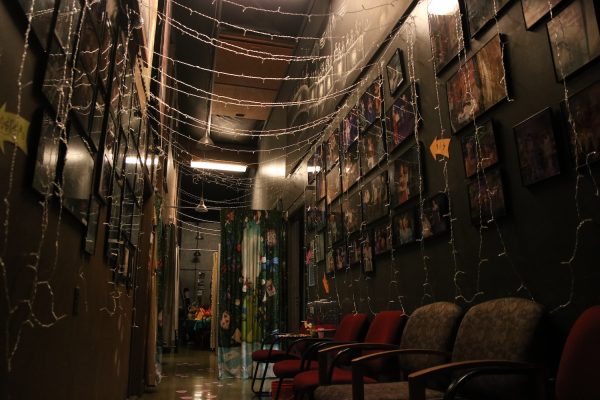
The garage became the stage. They created openings and backstage spaces.
“We made it with our own hands,” Chechelnitsky said.
As the theater started up, it was extremely expensive to fund. All of the money made from ticket sales was going into rent, props, and costumes.
Nobody was getting paid.
People were doing it out of “love for theater and a desire to act – to be on the stage,” Chechelnitsky said.
Yet, people liked the idea of a Russian-speaking theater.
The theater’s initial audience was an older crowd who could not go to American theaters because they did not understand the language or could not afford it.
As Theatre You developed, it drew a dedicated audience. It was able to build a high-quality black box theater with the help of a lighting and sound engineer who had previously worked for the Moscow Theatre.
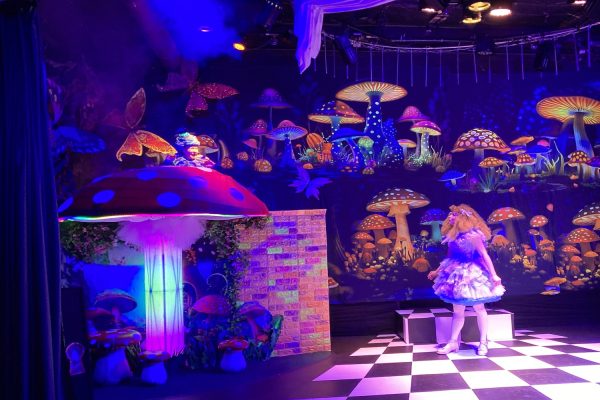
There is a sense of camaraderie at the theater.
According to Nataliya Bondar, an actor who joined Theatre You more than 10 years ago, her favorite part is getting to sit together with actors and a director to read a play for the first time and watch the “birth of the performance.”
“I love the process of building a performance from scratch,” Bondar said.
Many cultural spaces like Theatre You exist, and they are a tool for migrants to preserve their language and culture.
However, their impact is limited, as businesses often need to adapt to include American audiences and customers in order to stay afloat.
According to Chechelnitsky, it is very hard for ethnic theater to survive because it requires the audience to understand the language.
“I think for us to continue flourishing, we need to involve younger people who are limited in Russian,” Chechelnitsky said.
Over the years, Chechelnitsky has continued to act at Theatre You alongside her job as an ophthalmologist.
She leaves work at 7 p.m. and arrives for rehearsals at the theater at 7:30 p.m.
For Chechelnitsky, acting “takes away all worries, all tiredness, all sickness.”
The members of Theatre You continue to perform because of a love for theater and the community, according to Chechelnitsky.
“It feels like one family. One family speaking the same language,” Chechelnitsky said.



